- Home
- Harlan Coben
Drop Shot Page 4
Drop Shot Read online
Page 4
Only two courts were used for the night sessions: Stadium Court and the adjacent Grandstand Court. The day sessions, Myron thought, were much more fun. Fifteen or sixteen matches might be going on at the same time. You could cruise around, catch a great five-set match on some obscure court, discover an up-and-coming player, see singles, doubles, and mixed doubles matches all in the glorious sunshine. But at night you basically sat in one seat and watched a match under lights. During the Open's first couple of days this match usually featured a top-seed mercilessly decapitating a qualifier.
Myron parked in the Shea Stadium lot and crossed the walking bridge over the No. 7 train. Someone had set up a booth with a radar gun where spectators could measure the speed of their own serve. Business was brisk. Ticket scalpers were also busy. So were the guys selling knockoff U.S. Open T-shirts. The knockoff T-shirts sold for five dollars, as opposed to the ones inside the gates that went for twenty-five dollars. Not a bad deal on the surface. Of course, after one wash the knockoff T-shirt could only be worn by a Barbie doll. But still.
Pavel Menansi was in one of the players' boxes, the same one Myron and Win had sat in earlier in the day. It was 6:45 P.M. The final day match was over. The first night match, featuring Pavel's latest protegee, fourteen-year old Janet Koffman, would not begin until 7:15 P.M. People were milling around during the day-to-night cusp. Myron spotted the usher from the day session.
"How ya doing, Mr. Bolitar?" the usher said.
"Fine, Bill. Just wanted to say a quick hello to a friend."
"Sure, no prob, go right ahead."
Myron headed down the steps. Without warning a man wearing a blue blazer and aviator sunglasses stepped in front of him. He was a big guy--six-four, two-twenty--just about Myron's size. His neatly combed hair sat above a pleasant though unyielding face. He expanded his chest into a paddleball wall, blocking Myron's path.
His voice said, "Can I help you, sir?" But his tone said, Take a hike, bub.
Myron looked at him. "Anyone ever tell you you look like Jack Lord?"
No reaction.
"You know," Myron said. "Jack Lord? Hawaii Five-O?"
"I'll have to ask you to leave, sir."
"It's not an insult. Many people find Jack Lord very attractive."
"Sir, this is the last time I'm going to ask nicely."
Myron studied his face. "You even have that Jack Lord surly grin. Remember it?" Myron imitated the grin for him, in case he'd never seen the show.
The face twitched. "Okay, buddy, you're out of here."
"I just want to speak to Mr. Menansi for a moment."
"I'm afraid that won't be possible at this time."
"Oh, okay." He spoke a little louder. "Just tell Mr. Menansi that Duane Richwood's agent wanted to discuss something very important with him. But if he's not interested I'll go elsewhere."
Pavel Menansi's head jerked around as though pulled by a string. His smile flicked on like a cigarette lighter. He rose, his eyes half open, his whole persona oozing that foreign charm that some women find irresistible and others find nauseating beyond words. Pavel was Romanian, one of tennis's original Bad Boys, the former doubles partner of Ilie "Nasty" Nastase. He was nearing fifty, his face tanned to the point of leathery. When he smiled, the leather cracked almost audibly.
"Pardon me," he said. His voice was smooth--part Romanian, part American, part Ricardo Montalban discussing Corinthian leather. "You are Myron Bolitar, are you not?"
"I am."
He dismissed Jack Lord with a nod. Big Jack was not happy about it, but he moved out of the way. His body swung to the side like a metal gate, allowing only Myron to enter. Pavel Menansi held out a hand. For a moment Myron thought he wanted him to kiss it, but it ended in a brief handshake.
"Please," Pavel said. "Sit here. Next to me."
Whoever was in the seat quickly made himself scarce. Myron sat. Pavel did likewise. "I apologize for my guard's zeal, but you must understand. People, they want autographs. Parents, they want to discuss their child's play. But here"--he spread his hands--"this is not the time or place."
"I understand," Myron said.
"I've heard quite a bit about you, Mr. Bolitar."
"Please call me Myron."
Pavel had the smile of a lifelong smoker, sans proper dental hygiene. "Only if you call me Pavel."
"Deal."
"Fine then. You discovered Duane Richwood, did you not?"
"Somebody pointed him out to me."
"But you saw the potential first," Pavel insisted. "He never played in the juniors, never went to college. That's why all the big agencies missed him, am I right?"
"I guess so."
"So now you have a top tennis contender. You are now competing with the big boys, yes?"
Myron knew that Pavel Menansi worked with TruPro, one of the country's largest sports agencies. Working with TruPro didn't automatically make you a sleazeball, but it brought you awfully close. Pavel was worth millions to them--not because of what he made as much as the young talent he brought in. Pavel got a Svengali-like hold on prodigies at the age of eight or ten, giving TruPro a hell of an advantage in getting them signed. TruPro had never been a reputable agency--almost a contradiction in terms anyway--but over the last year it had become mob-controlled, run by the appropriately named Ache brothers of New York City. The Ache brothers were into all the top mob favorites: drugs, numbers, prostitution, extortion, gambling. Sweethearts, those Aches.
"Your Duane Richwood," Pavel continued. "He played a fine match today. Fine match indeed. His potential is quite limitless. You agree?"
"He works very hard," Myron said.
"I'm sure he does. Tell me, Myron, who is Duane's present coach?" He said present, but it came out more like former.
"Henry Hobson."
"Ah." Pavel nodded with vigor, as though this response explained something very complex. He, of course, already knew who coached Duane. Pavel probably knew who coached every player on the circuit. "Henry Hobson is a fine man. A competent coach." He said competent, but it came out more like crappy.
"But I believe I can help him, Myron."
"I'm not here to talk about Duane," Myron said.
A shadow crossed his face. "Oh?"
"I want to discuss another client. Or should I say a once-potential client."
"And who would that be?"
"Valerie Simpson."
Myron looked for a reaction. He got one. Pavel lowered his head into his hands. "Oh, my God."
The box rumbled with overwrought concern. Comforting hands found their way to Pavel's shoulders, uttering his name in low voices. But Pavel pushed them away. Very brave.
"Valerie came to me a few days ago," Myron continued. "She wanted to make a comeback."
Pavel took a deep breath. He made a show of putting himself together a piece at a time. When he was able to continue, he said, "The poor child. I can't believe it. I just can't...." He stopped. Overwhelmed again. Then: "I was her coach, you know. During her glory years."
Myron nodded.
"To be shot down like that. Like a dog." He shook his head dramatically.
"When was the last time you saw Valerie?"
"Several years ago," he said.
"Have you seen her since the breakdown?"
"No. Not since she went into the hospital."
"Spoken to her? On the phone maybe?"
Pavel shook his head again. Then he lowered it. "I blame myself for what happened to her. I should have looked out for her better."
"What do you mean?"
"When you coach one so young, you have responsibilities that go beyond her life on the court. She was a child--a child growing up in the spotlight. The media, they are savages, no? They don't understand what they do to sell papers. I tried to cushion some of their blows. I tried to protect her, to not let it eat her up inside. In the end, I failed."
He sounded genuine, but Myron knew that meant nothing. People were amazing liars. The more sincere they sounded--the
more they held your gaze and looked truthful--the more sociopathic they were. "Do you have any idea who would have wanted her dead?"
He looked puzzled by the question. "Why are you asking these questions, Myron?"
"I'm looking into something."
"Into what? If I may ask."
"It's kind of personal."
He studied Myron for a few seconds. The stench of tobacco was heavy on his breath. Myron was forced to inhale through his mouth. "I will tell you the same thing I told the police," Pavel said. "In my opinion Valerie's breakdown was not just from the usual tennis pressures."
Myron nodded, encouraging him to continue.
Pavel turned his palms toward the sky, as though seeking divine intervention. "Perhaps I am wrong. Perhaps I want to believe that to--how do you say?--soothe my own guilt. I don't know anymore. But I've had a lot of young people in my camp and never have I experienced anything like what happened to Valerie. No, Myron, her problems were caused by more than the pressures of big-time tennis."
"What then?"
"I'm not a medical doctor, you understand. I cannot say for sure. But you must remember that Valerie was being menaced."
Myron waited for him to elaborate. When he didn't, Myron said, "Menaced?" Probing interrogatories--one of Myron's strong suits.
"Stalked," he said with a finger snap. "That's the word they use nowadays. Valerie was being stalked."
"By whom?"
"A very sick man, Myron. A terrible man. After all these years I still remember his name. Roger Quincy. Crazy animal. He wrote her love letters. He called all the time. He hung around her house, by her hotel, at every match she played."
"When was this?"
"When she was on the tour, of course. It began--I don't know--six months before she was hospitalized."
"Did you try to stop him?"
"Of course. We went to the police. They could do nothing. We tried to get a court order, but this Quincy never actually threatened her. He would say 'I love you, I want to be with you,' things like that. We did our best. We changed hotels, signed in under different aliases. But you have to remember, Valerie was just a child. She became paranoid. The pressure on her was already tremendous. But now she had to look over her shoulder all the time. This Roger Quincy, he was a crazy beast. That's what he was. He was the one who should have been gunned down."
Myron nodded, waiting a beat. "How did Alexander Cross react to Roger Quincy?"
The question stunned Pavel like a surprise left hook. Lennox Lewis vs. Frank Bruno. He hesitated, trying to regain his footing. The players came out of the tunnel. Applause began to build. The distraction worked like a standing eight count, giving Pavel time to recover.
"Why would you ask that?" he asked.
"Weren't Alexander Cross and Valerie Simpson involved?"
"I guess you could say that."
"Seriously?"
"She was away a lot. Traveling. But they seemed fond of each other."
"And I assume their relationship was going on at the same time Quincy was stalking Valerie?"
"I believe the time periods overlapped, yes."
"So it's a natural question," Myron said. "How did Valerie's boyfriend react?"
"Natural, perhaps," he said. "But you must admit it is also a bizarre question. Alexander Cross has been dead for several years now. How is his reaction relevant to what happened to Valerie today?"
"For one, they were both murdered."
"You're not suggesting a connection?"
"I'm not suggesting anything," Myron said. "But I don't understand why you don't want to answer my question."
"It's not a matter of wanting or not wanting," Pavel replied. "It's a matter of doing what is right. You are delving into places where you do not belong. Personal places. Places that cannot possible have any relevance in today's world. I feel like I am betraying confidences. You see?"
"No."
Pavel looked back at Jack Lord. Jack's mouth twitched. He stood again. The chest self-inflated.
"The match is about to begin," Pavel said. "I hate to be rude, but I really must ask you to leave now."
"Hit a raw nerve, did I?"
"Yes. I cared for Valerie very deeply."
"That wasn't what I meant."
"Please leave. I must concentrate on this match."
Myron did not move. Jack Lord put a big mitt on Myron's shoulder. "You heard the man," he said. "Move out."
"Let go of my shoulder," Myron said.
Jack shook his head. "No more games, pal. It's time for you to get lost."
"If you don't move your hand," Myron explained calmly, "I'll hurt you. Maybe severely."
From behind his sunglasses Big Jack finally smiled. His grip on Myron's shoulder tightened. Myron quickly reached up with his right hand and grabbed the man's thumb. He locked the joint and pulled it back the wrong way. Jack dropped to one knee.
Myron lowered his mouth toward Jack's ear. "I don't want to make a scene, so I'm going to let you go," he whispered. "If you do anything but smile I will hurt you. Definitely severely. Nod if you understand."
He nodded, his face pale.
Myron let the thumb go. "Later, Pavel."
Pavel said nothing.
Myron walked past Jack. As ordered, Jack was smiling.
"Book 'em, Dann-o," Myron said.
6
A stalker.
Could it be that simple? Could some deranged fan have put a bullet into Valerie Simpson because a voice told him to? Doesn't explain Duane Richwood's connection. But maybe there was no connection. Or maybe the connection had nothing to do with the murder and, more important, was none of Myron's business.
Myron turned onto Hobart Gap Road. He was only a mile from his home in Livingston, New Jersey. The powder-blue Caddy with the canary-yellow roof finally turned off, jumping on the JFK Parkway. Whoever it was must have figured Myron was going home for the night, and hence there was no reason to keep the tail. But if the Caddy was around tomorrow, Myron would have to take care of it--unmask the true identity of Mr. Miami Gin Tournament.
Right now he needed to concentrate on this whole stalker possibility.
If Valerie had been killed by Roger Quincy, then why had ol' Pavel gotten so antsy when Myron mentioned Alexander Cross? Or was it just like Pavel said--he didn't want to betray confidences? When you thought about it, wasn't it a hell of a lot more probable that Pavel just felt it was in his best interest to keep quiet? Senator Cross was an awfully powerful man. Spreading stories about his murdered son wasn't necessarily the wisest course of action. So there could be nothing there. Then again it could be something big. Or something small.
Thoughts like these are what made Myron a brilliant detective.
He parked in the driveway. His mom's car was in the garage. His dad's was nowhere in sight. He opened the door with his key.
"Myron?"
Myron. God, what a name. You'd think he'd be used to it by now, but occasionally the horror hit him anew. He had been dubbed Myron. A last-second decision, his parents claimed. Something Mom came up with at the hospital. But to name a kid Myron Bolitar? Was that fair? Was that ethical?
As a youngster Myron tried giving himself nicknames: Mike, Mickey, even Sweet J, for his famous jumpshot. Okay, maybe it was a good thing that Sweet J didn't stick. But still.
Warning to parents naming children: Let's be careful out there.
His mother called out, "Myron? Is that you?"
"Yeah, Mom."
"I'm in the den." She was wearing an exercise outfit, watching some kind of workout tape. She stood on one leg, crane stance a la The Karate Kid. On the television a familiar voice crooned, "Now flow-step to the left...."
David Carradine's T'ai Chi Workout. Wonderful.
"Hi, Mom."
"You're late," she said.
"I didn't realize I had a curfew."
"You said you'd be home by seven. It's past nine."
"Your point being?"
"I was worried.
I saw on the news about that girl getting shot at the Open. How did I know you weren't killed?"
Myron held back a sigh. "Did the news say I was killed? Did the news say anything about unidentified bodies? Or did they say only one girl named Valerie Simpson was shot?"
"They could have been lying."
"Excuse me?"
"Happens all the time. The police lie to the reporters until they notify the next of kin."
"Weren't you home all day?"
"What, the police have my phone number?"
"But they could..." He stopped. What was the point? "Next time a murder takes place within a three-mile radius of my being I'll be sure to call home."
"Good." She snapped off the tape. Then she placed a pillow in a corner and stood on her head.
"Mom?"
"What?"
"What are you doing?"
"What's it look like? I'm standing on my head. It's good exercise. Makes the blood flow. Makes me look my best. You know who used to stand on his head every day?"
Myron shook his head.
"David Ben-Gurion."
"And everyone knows what a looker he was," Myron said.
"Smart-mouth."
Mom was a major paradox. On the one hand she'd been a practicing attorney for the past twenty years. She was the first generation born in the United States, her parents coming over from Minsk or somewhere like that, living lives that as near as Myron could tell paralleled Fiddler on the Roof. She became a sixties radical, an original bra burner, and experimented with various mind-altering drugs (hence naming a child Myron). She did not cook. Ever. She had no idea where the vacuum cleaner was stored. She did not know what an iron looked like, never mind whether or not she owned one. In the courtroom her crosses were legendary. She breakfasted on star witnesses. She was bright, frighteningly shrewd, and very modern.
On the other hand, all of this went out the window when it came to her son. She completely decompensated. She became her mother. And her mother before her. Only worse. Murphy Brown became Grandma Tzietl.
"Your father is picking up some Chinese food. I ordered enough for you."
"I'm not hungry, thanks."
"Spareribs, Myron. Sesame chicken." Meaningful pause. "Shrimp with lobster sauce."
"I'm really not hungry."
"Shrimp with lobster sauce," she repeated.
"Mom..."
"From Fong's Dragon House."

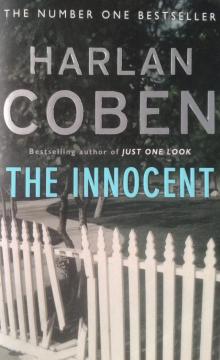 The Innocent
The Innocent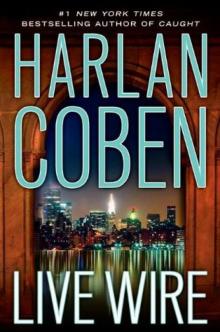 Live Wire
Live Wire Play Dead
Play Dead Drop Shot
Drop Shot Seconds Away
Seconds Away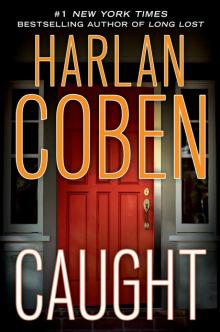 Caught
Caught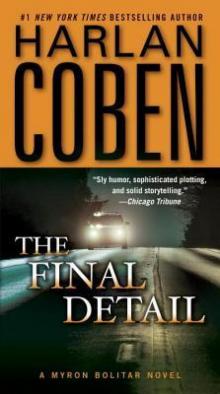 The Final Detail
The Final Detail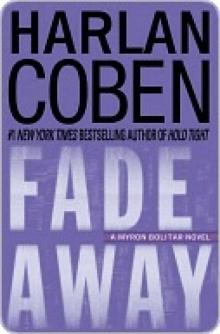 Fade Away
Fade Away Home
Home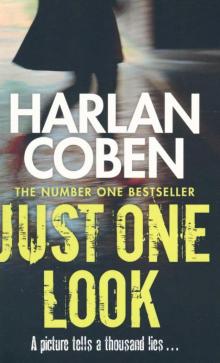 Just One Look
Just One Look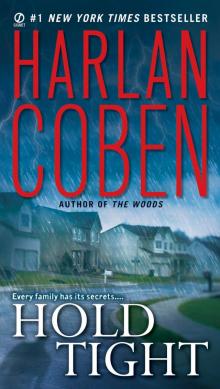 Hold Tight
Hold Tight Fool Me Once
Fool Me Once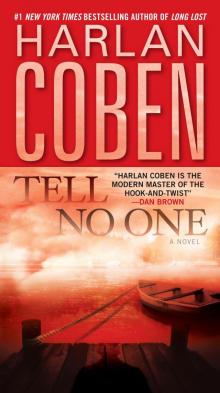 Tell No One
Tell No One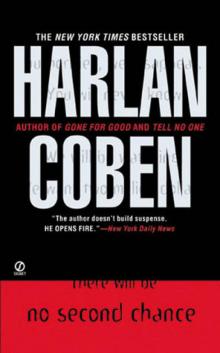 No Second Chance
No Second Chance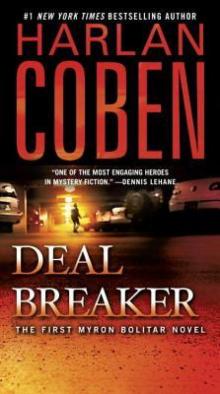 Deal Breaker
Deal Breaker Long Lost
Long Lost One False Move
One False Move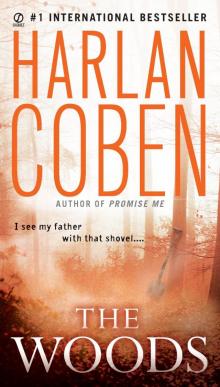 The Woods
The Woods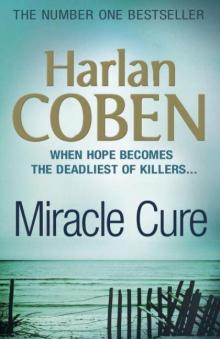 Miracle Cure
Miracle Cure Found
Found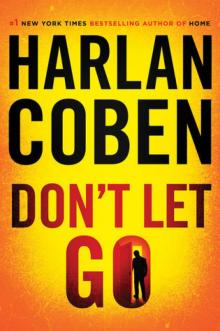 Don't Let Go
Don't Let Go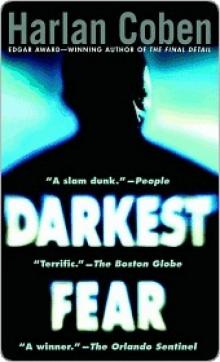 Darkest Fear
Darkest Fear The Stranger
The Stranger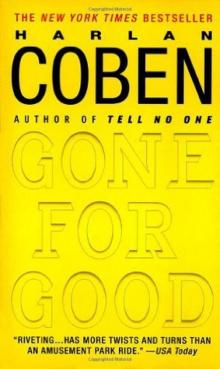 Gone for Good
Gone for Good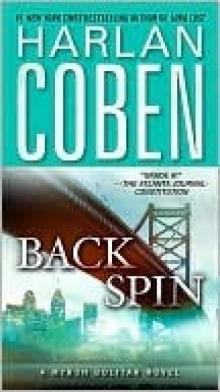 Back Spin
Back Spin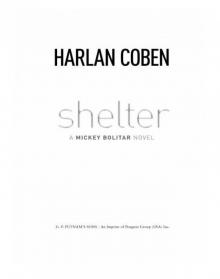 Shelter
Shelter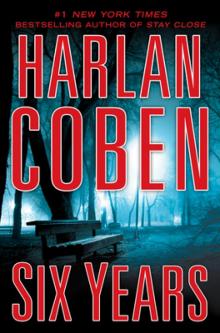 Six Years
Six Years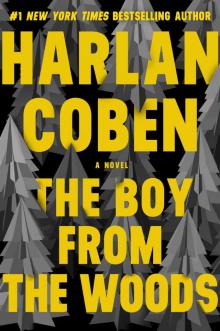 The Boy from the Woods
The Boy from the Woods Missing You
Missing You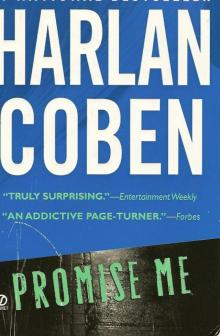 Promise Me mb-8
Promise Me mb-8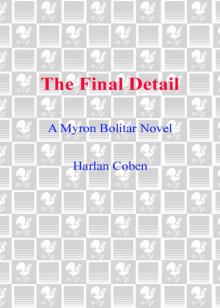 The Final Detail: A Myron Bolitar Novel
The Final Detail: A Myron Bolitar Novel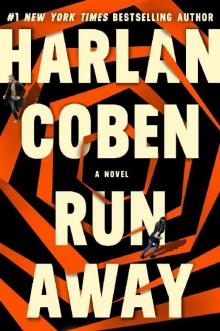 Run Away
Run Away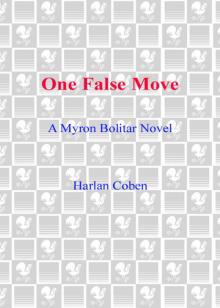 One False Move: A Myron Bolitar Novel
One False Move: A Myron Bolitar Novel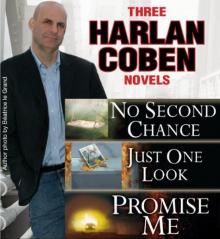 Three Harlan Coben Novels
Three Harlan Coben Novels the Woods (2007)
the Woods (2007) Tell No One (2001)
Tell No One (2001) the Innocent (2005)
the Innocent (2005)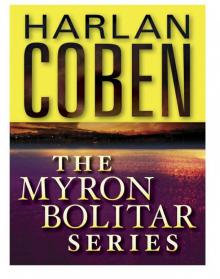 The Myron Bolitar Series 7-Book Bundle
The Myron Bolitar Series 7-Book Bundle Gone for Good (2002)
Gone for Good (2002) Caught (2010)
Caught (2010) Hold Tight (2008)
Hold Tight (2008)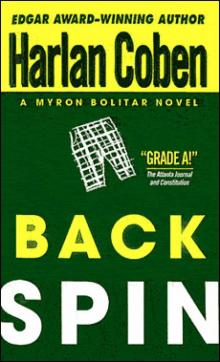 04 - Back Spin
04 - Back Spin Miracle Cure (1991)
Miracle Cure (1991)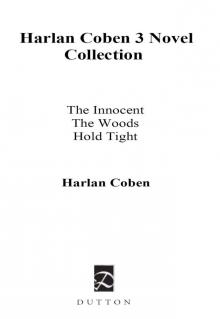 Harlan Coben 3 Novel Collection
Harlan Coben 3 Novel Collection Just One Look (2004)
Just One Look (2004)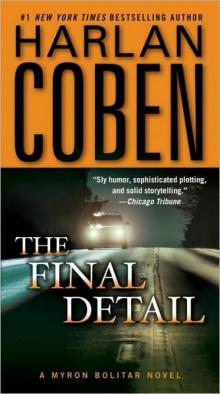 The Final Detail mb-6
The Final Detail mb-6 Play Dead (2010)
Play Dead (2010)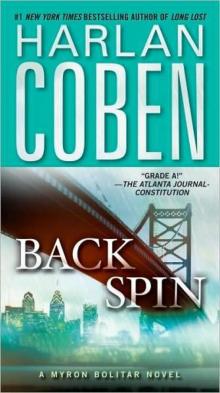 Back Spin mb-4
Back Spin mb-4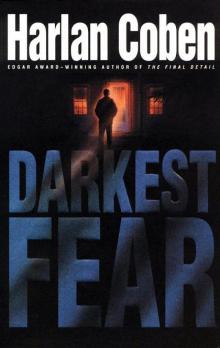 Darkest Fear mb-7
Darkest Fear mb-7